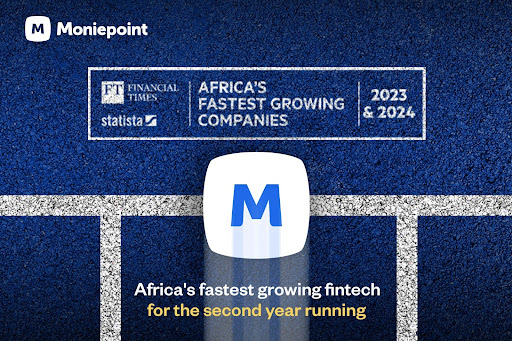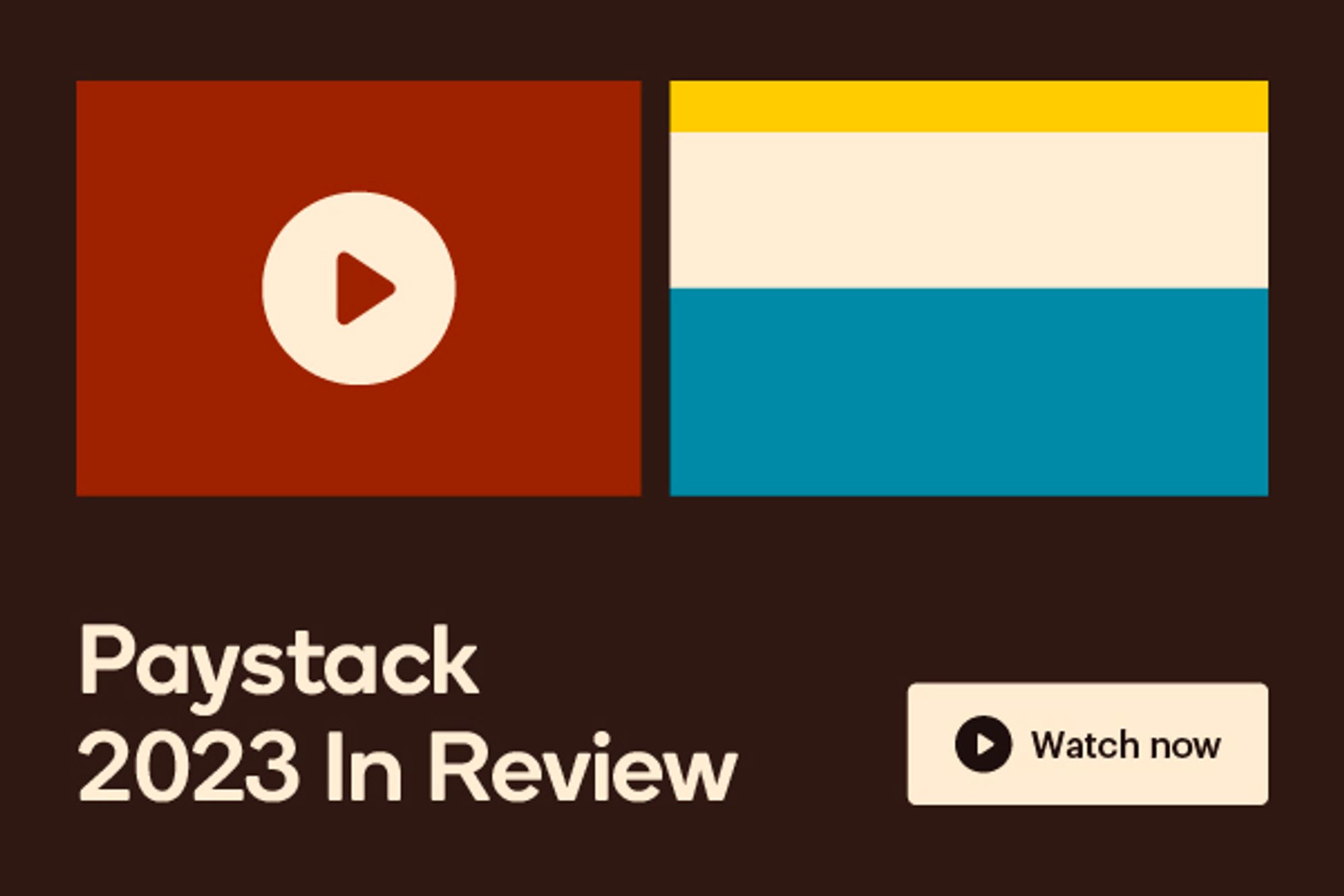- 👨🏿🚀TC Daily
- Posts
- Zimbabwe's golden rule
Zimbabwe's golden rule
Plus: Kenya's new bill means ICT professionals have to get licensed or pay $39,000.


Good morning ☀️
If you'd like to gain exclusive access to Africa's next tech unicorns, TechCabal Battlefield is building the most comprehensive database of investable African startups. Our platform is your gateway to uncovering the next big thing in tech, with startups building various tech solutions from across various sectors, leveraging emerging technologies.
If you’re ready to discover Africa's most promising and investable startups, fill out the investor application for now. Apply now.
Kenya introduces ICT operator licence
It’s digital tax season in Kenya.
Last week, Kenya's national treasury proposed a 1.5% digital tax on local platforms that offer services such as online jobs, rentals, food delivery, and ride-hailing. If approved by Parliament, the tax would add to Kenya's existing digital service tax, which currently applies to the sale of e-books, films, music, games, and other digital content.
More tax, please: Kenya is planning the introduction of operational licences for ICT operators. The licences are part of a broader ICT Authority Bill 2024, a plan aimed at regulating the country's ICT sector and ensuring compliance with national laws and regulations.
The bill requires ICT operators to obtain an operational licence and assigns accreditation categories based on experience and technical skills. This tiered system could potentially benefit smaller operators by requiring less stringent qualifications for basic services. Operators who fail to get accredited, under the bill, will pay fines of up to KES million ($39,000) or/and face up to five years in prison.
Kenya’s new move mirrors Nigeria’s vaguely conscripted rule to regulate ICT professionals in the country.
Why does it matter? While the ICT operator licence aims to guarantee high-quality ICT services in the country, its introduction could significantly impact the cost of doing business for ICT operators in Kenya, potentially leading to increased costs for consumers This, in turn, could stifle the growth of the digital economy and limit access to technology for some Kenyans.
Is Kenya’s failed ICT bill resurfacing? Since 2016, Kenyan legislators have been proposing a controversial ICT Practitioners Bill which would require ICT professionals in the country—tech bros—with 3 years of experience to get licensed or pay notable fines. The bill resurfaced again in 2022 and passed all its readings until then-President Uhuru Kenya rejected the bill. Now, two years later, it appears the ICT Practitioners Bill has now morphed into the “ICT Authority Bill”. It's arguable that the new bill is even harsher than the old one. The new bill's fines are 10x the KES500,000 (3,900) fine prescribed by the old ICT Practitioners Bill.
Zoom out: Applications for the operator licences will be reviewed within 30 days and successful applicants will be accredited. According to the ministry of ICT and digital economy, approved and accredited applications must be renewed annually. An ICT provider that breaks the rules of its accreditation risks having its certificate suspended by the authority.
Moniepoint is Africa’s fastest-growing fintech

The Financial Times has ranked Moniepoint as Africa’s fastest-growing fintech based on its absolute and compound growth rate. Read more about it here.
Zimbabwe to track gold smuggling
Zimbabwe is on a roll to protect its most valuable resource.
This week, Zimbabwean authorities announced a new system that will trace the supply of gold from the mines to the markets. Starting September 30, Fidelity Gold Refinery Ltd, the sole authorised gold buyer in the country, will implement the new golden rule.
Why is this policy necessary? The International Crisis Group reported Zimbabwe loses $1.5 billion annually due to the smuggling of its precious metals. Losing this huge revenue annually represents a significant loss for the already struggling economy of Zimbabwe.
Gold is tied to Zimbabwe’s new currency: This year, Zimbabwe also launched a new gold-backed currency, the Zimbabwe Gold or “ZiG”. The ZiG is backed by 2.5 tons of Zimbabwe's gold reserves and an additional $100 million. If significant amounts of gold leave the country illegally, it undermines the ZiG's core value proposition. Smuggled gold could be sold on the black market for a higher price than the official rate. This could incentivise people to smuggle more, creating a vicious cycle that weakens the ZiG which is already declining.
How will the tracing work? “The new system will enable real-time monitoring of gold from the weighing of the metals in its unrefined form by the producers to its delivery to Fidelity Gold Refinery and subsequently it will be traced to the market”, said Peter Magaramombe, an official at Zimbabwe’s apex bank.
High-ranking officials are smuggling gold: Al-Jazeera previously reported on the involvement of high-ranking officers from the government and the Reserve Bank of Zimbabwe in gold smuggling, allegations Zimbabwean authorities denied. Last November, however, the President of the Miner’s Federation, Henrietta Rushwaya, was convicted of gold smuggling.
Moving forward: The country aims to produce 40 tons of gold this year, an increase from 30.1 tons produced in 2023. With significant revenue at stake and accusations of high-level involvement, Zimbabwe's new gold tracing system signifies an attempt to combat smuggling and improve the nation's struggling economy.
Nigerian neobanks get rules to resume customer onboarding
Last month, Nigeria's central bank asked four neobanks—Moniepoint, Kuda, Opay, and Palmpay—to pause onboarding of new customers. Per a TechCabal report, the pause was linked to a directive from the National Security Adviser (NSA).
To understand the restrictions, leaders of these neobanks converged in a meeting with the CBN and the NSA in Abuja on Friday, April 26.
What came out of those talks were instructions for neobanks to tighten up loose ends within their KYC processes.
Palmpay began asking its users to complete facial recognition verification before May 31 or face account restrictions. Kuda also asked customers to provide proof of their house addresses. Other neobanks will follow suit by releasing a raft of details customers need to update
Why does this matter? KYC has always been a debated issue amongst neobanks. In a bid to boost financial inclusion, neobanks maintained relaxed KYC rules that allowed for easy onboarding of users.
As user onboarding remains paused, failure to reach a consensus between the regulators and the neobanks could reduce the pace of growth of these banks who have been major beneficiaries of Nigeria's digital payment boom.
The episode also underscores the limited influence of the fintech industry in shaping regulations, as they continue to face intense scrutiny over their adherence to Know Your Customer (KYC) procedures and fraud prevention measures.
Collect payments anytime anywhere with Fincra

Are you dealing with the complexities of collecting payments from your customers? Fincra’s payment gateway makes it easy to accept payments via cards, bank transfers, virtual accounts and mobile money. What’s more? You get to save money on fees when you use Fincra. Get started now.
Congo to launch national data centre
The Republic of Congo is set to build a three-storey data centre in the Bacongo district of Brazzaville.
This National data centre is intended to store and process the country’s digital data. This project includes an installation of a 600-kilometre fibre optic cable connecting major routes with Cameroon and the Central African Republic (CAR) through the Congo River.
The total funding for the project is $72.8 million, with $56 million provided by the African Development Bank (AfDB) and $15.8 million from the Congolese government. Of this total amount, $14.6 million is allocated specifically for the construction and operation of the data centre.
The facility will include server rooms, monitoring rooms, conference rooms, and necessary energy and air-conditioning equipment, with completion expected by December 2024.
Why is this Important for Congo? Michael Ngakala, the project coordinator, noted that the data centre will make the Republic of the Congo the only Central African country with such a facility, allowing data to be processed locally instead of relying on servers abroad.
He highlighted the ongoing digital identification project by the postal and telecommunications ministry, which will produce a large volume of data and will be securely stored locally.
He explained that data stored domestically is less vulnerable to hacking compared to data stored abroad and this centre will allow for better regulation of data processing and access.
Local businesses get a boost: This change will enable Congolese domain names to use the ".cg" extension instead of “fr” or “.com” and allow local hosting of public and private data, benefiting telecom operators, banks, insurance companies, and other businesses. The project is seen as a major boost for Congo's digital economy and digital security.
Psst! Here’s what Paystack has been up to 🔥

Paystack gives ambitious businesses in Africa the payments tools they need to scale. A lot happened in 2023 - so many improvements, you might have missed some! As we continue building in 2024, here are the 10 stories that shaped our past year 👉🏾 paystack.com/2023
OpenseedVC launches with a $10 million fund
OpenseedVC, an early-stage venture capital firm, has secured $10 million for its inaugural fund, aimed at supporting early-stage startups in Africa and Europe.
OpenseedVC, headquartered in London, plans to invest up to $150,000 in startups in sectors such as B2B software, artificial intelligence, fintech, digital health, and the future of work.
Sixty startups with experienced founders to get support: The VC firm will act as a launchpad for startups with no plans of follow-on investments in exchange for a 5% ownership stake. The firm will spread its investments across 60 startups for 5 years.
It is looking to back experienced entrepreneurs by providing seed funding and guidance. The firm asks three main questions before investing: the market size, the unique advantage of the team, and the timing. It will also be providing access to a network of over 50 experienced operators to support founders.
Maria Rotilu, the general partner, highlighted the firm will prioritise investing in three key areas: the future of commerce, healthcare, and the workplace. It will also be prioritizing founders with domain expertise and second-time founders who have a clear idea of the markets they are entering and the skills to navigate such markets.
African founders support one another as funding declines: The launch of OpenseedVC offers a new funding source for African startups, which saw a 33% decline in funding in 2023. The firm aims to balance its portfolio between Europe and sub-Saharan Africa, supporting startups with high potential for success based on the founders' expertise and ability to address scalable and impactful problems.
Attend GITEX Africa 2024

GITEX Africa returns a second time on May 29–31, 2024, to Marrakech, Morocco, discussing ways to accelerate the continent’s digital health revolution. GITEX is the continent's largest all-inclusive tech event renowned for uniting the brightest minds in the technology industry. Grab your tickets here.
The World Wide Web3
Source:

Coin Name | Current Value | Day | Month |
|---|---|---|---|
| $70,925 | + 5.69% | + 8.85% | |
| $3,631 | + 16.08% | + 14.16% | |
$0.019 | + 60.44% | + 2677.51% | |
| $181.99 | + 2.77% | + 20.67% |
* Data as of 06:35 AM WAT, May 21, 2024.
- TechCabal is set to announce its first set of speakers for the second edition of its Moonshot Conference which is set for October 9–11, 2024, at the Eko Convention Centre, Lagos, Nigeria. Moonshot will assemble Africa’s biggest thinkers, players and problem solvers on a global launchpad for change. If you want to join the stakeholders in Africa’s tech ecosystem for three days of insightful conversations, then get an early-bird ticket at 20% off.
Here's what we've got our eyes on
Written by: Faith Omoniyi & Towobola Bamgbose
Edited by: Timi Odueso
Want more of TechCabal? Sign up for our insightful newsletters on the business and economy of tech in Africa.
- The Next Wave: futuristic analysis of the business of tech in Africa.
- Entering Tech: tech career insights and opportunities in your inbox every Wednesday at 3 PM WAT.
- In a Giffy: business decisions powered by data-driven insights and analysis you can trust.
- TC Scoops: breaking news from TechCabal
P:S If you’re often missing TC Daily in your inbox, check your Promotions folder and move any edition of TC Daily from “Promotions” to your “Main” or “Primary” folder and TC Daily will always come to you.



